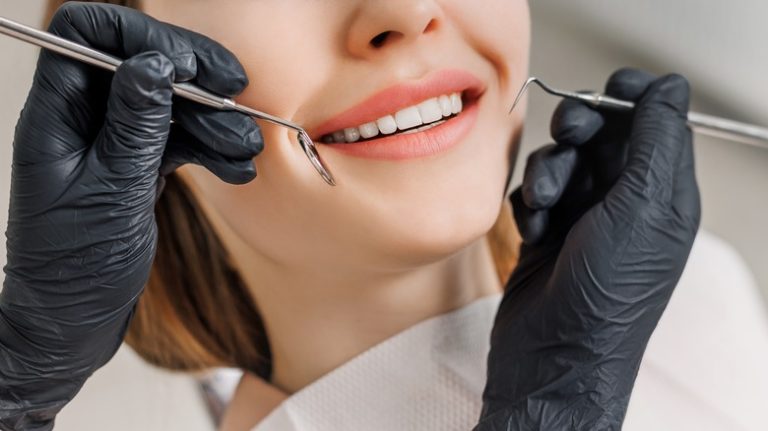When wisdom teeth are not removed, they can lead to uncomfortable symptoms like pain and discomfort in the jaw. These symptoms are similar to many of the symptoms of TMJ, which is why some people believe that there is a connection between the two. However, there is no scientific evidence to support this claim (via Medical News Today). While it is true that wisdom teeth can cause pain in the jaw, this is not the same as TMJ. TMJ is a condition that affects the joints in the jaw, while wisdom teeth are simply extra teeth that can crowd the mouth and cause pain. There is no connection between the two conditions, and treating one will not necessarily relieve the symptoms of the other.
If you are experiencing pain in your jaw, it is important to see a doctor or dentist to determine the cause. If your wisdom teeth are causing discomfort, they can be removed by a dentist. However, if you have TMJ, you may need to see a specialist for treatment. There is no one-size-fits-all solution for TMJ, but there are many effective treatments available that can help relieve the pain and other symptoms.
What to know about TMJ pain

TMJ stands for temporomandibular joint (via Mayo Clinic). This joint connects your lower jaw (mandible) to your skull. The TMJ allows you to move your jaw up and down and side to side, so you can talk, chew, and yawn. These joints, located on each side of your jaw, are surrounded by muscles, ligaments, and tendons that work together so you can open and close your mouth. Problems with any of these components can lead to pain and dysfunction of the TMJ. This is commonly referred to as TMJ disorder or simply TMJ.
The most common symptom of TMJ is pain in the jaw area. This pain can be dull and constant or sharp and intermittent. Other symptoms include clicking, popping, or grinding noises when you move your jaw, a feeling that your jaw is locked in place, and difficulty chewing or a sudden change in the way your teeth fit together.
If you think you may have TMJ, it’s important to see your dentist or doctor for an evaluation (via Cleveland Clinic). They will ask about your symptoms and medical history and do a physical examination of your jaw. They may also order imaging tests, such as x-rays or MRI, to get a better look at the joint. Based on the results of your evaluation, they will develop a treatment plan that may include lifestyle changes, home remedies, splint therapy, physical therapy, and/or medication.


